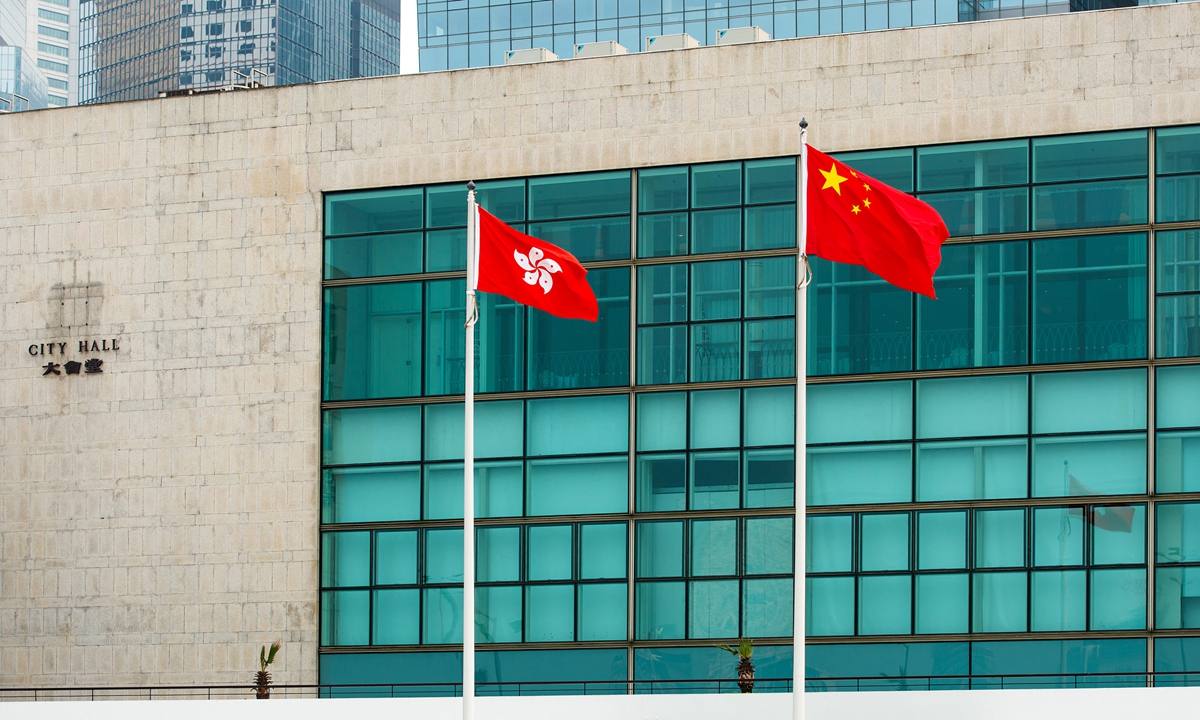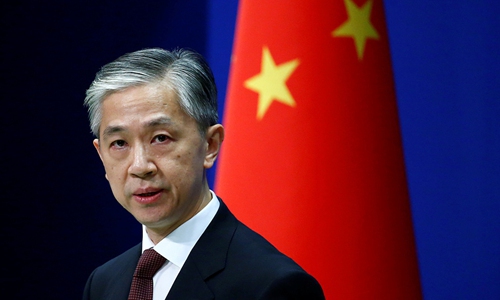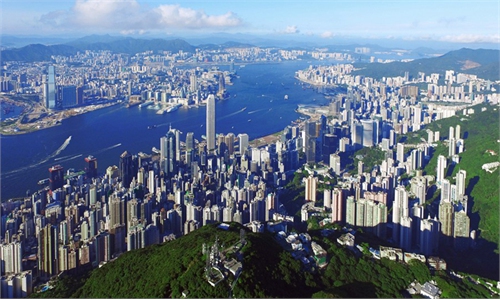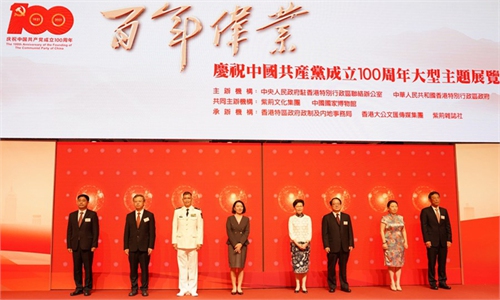COMMENTS / EXPERT ASSESSMENT
HK's attractiveness for multinational firms remains despite Western media's slander

Hong Kong File photo:VCG
While Hong Kong Special Administrative Region (SAR) is stepping up efforts to protect individual privacy and curb malicious doxing by enhancing related legislation, a Wall Street Journal report on Monday again hyped the so-called multinationals' withdraw threats, saying that Facebook, Twitter and Alphabet's Google have privately warned to "stop offer their services in the city if authorities proceed with planned changes to data-protection laws."Claiming that the city's planned rules could put these firms' staff at risk of criminal investigations or prosecutions related to what the firms' users post online, a letter sent by an industry group that includes the above firms said that "the only way to avoid these sanctions for technology companies would be to refrain from investing and offering the services in Hong Kong," according to the WSJ report.
Every country and region retains the right to implement legislation to curb acts which violate the limits of morality and the law, such as the doxing practices which were prevalent during 2019 riots in the city. Mobs rampantly uploaded many citizens' and police officers' personal information online and encourage private harassment.
The local government in May proposed an amendment to the city's Personal Data (Privacy) Ordinance (PDPO), intending to combat such dreadful privacy violations and suggested to empower Privacy Commissioner for Personal Data with statutory criminal investigation and prosecution powers.
Such legislation efforts to tackle the privacy violation acts is not a unique case in Hong Kong SAR, governments around the world have been implementing legislative or administrative measures to crack down on the unlawful acts in recent years.
If it is a common and reasonable scenario in the nations of those multinationals, why it is now a problem in Hong Kong SAR? It is simply one other typical double standard example of the West.
The industry group named Asia Internet Coalition (AIC) told the Global Times on Tuesday that "the letter shares industry's concerns with the proposed amendments," and it did not mention any individual AIC member company. "It is thus inaccurate to report that any one member is planning to leave Hong Kong."
Regardless of whether it was the companies or industry groups that issued the "warning", the "foreign firms leaving Hong Kong" threats have been hyped alongside the implementation of the National Security Law for the city last year and now the amendment of PDPO.
The threat made to leave Hong Kong did not occur last year, it won't realize afterwards. In fact, since the implementation of the National Security Law, Hong Kong has become more popular among international community.
With the city's social order and economic activities gradually returning to normal, many foreign firms have been planning to expand operation in the city. For instance, Glodman Sachs was reportedly planning to increase its hiring in Hong Kong by 20 percent this year; and Citigroup was intending to hire about 1,500 employees in 2021, doubling the figure a year ago.
The Hong Kong SAR government's proceeding of the amendment of PDPO will not only improve its private information protection, but will also help safeguard its social stability and economic prosperity. And Hong Kong resuming its economic vitality is in line with the interest of the majority of people, including foreign firms which respect local laws and regulations.
Not only that foreign businesses or institutions have absolutely no position to obstruct Hong Kong's legislation; the threat or actual move of leaving the market won't impact much on the city. Besides the city is fostering a more stable business environment for both domestic and foreign firms, what can also be sure is that Chinese firms have fully capability to offer better platforms which do not connive vicious doxing and other acts of privacy violation.
The article was compiled based on an interview with Liang Haiming, Chairman of the China Silk Road iValley Research Institute. bizopinion@globaltimes.com.cn



